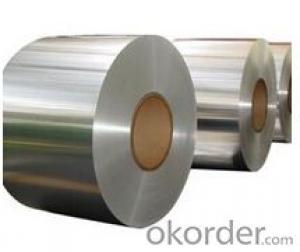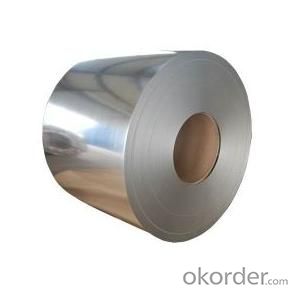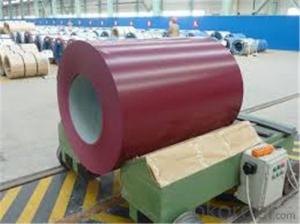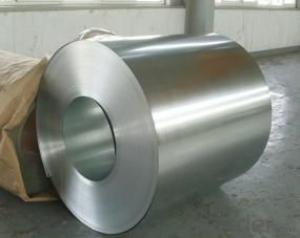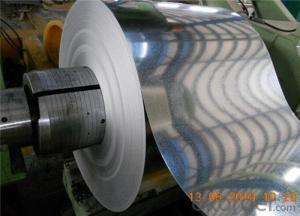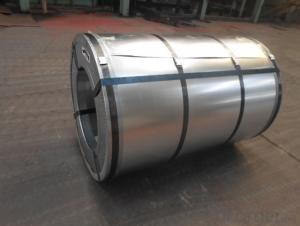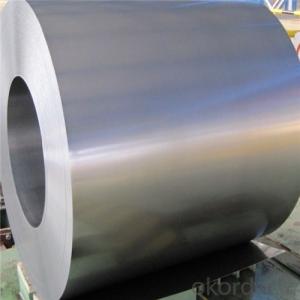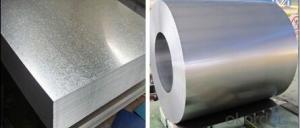Hot Sale Grade of Stainless Steel Coil for Construction
- Loading Port:
- Tianjin
- Payment Terms:
- TT OR LC
- Min Order Qty:
- 25 m.t.
- Supply Capability:
- 10000 m.t./month
OKorder Service Pledge
OKorder Financial Service
You Might Also Like
Basic description.
Surface Treatment:2b/Ba/Polish/No.4/8k
Certification:ISO, SGS
Technique:Cold Rolled
Standard:ASTM, AISI
Application:Industrial and House
Edge:Mill
Stock:Not Stock
Steel Grade:201/202/301/304/410/430/409
Raw Material:Bao Steel/Wuhang/Tisco
Width:20-1230mm
Thickness:0.2-2.5mm
Grade:201/202/301/304
Finish:2b/Ba/Polish/8k/6k
Export Markets:Global
Product Description
1. 15 days delivery
2. deep drawing quality
3. High strength
4. Minimal maintenance
5.Technique: Cold rolled
6.Surface treatment: 2B/BA/NO.4/POLISH/8K
7.coil Thickness: 0.22-2.50mm /circle thickness:0.24-0.8mm
8.coil Width: 20-1240mm/ circle diameter:145-560mm
9.Length: To be requirement
10.Edge: Slit edge / mill edge
11.Payment: TT or L/C
12.Packaging Detail: Standard export packing
Note: We can produce for you according to your specification. We can produce other standard as the customers' requirement,
Product advantage:
1. High extensibility, easily welded, hard to rust, the best choice for making decoration pipe.
2. Continuous casting billet produced by refine furnace, no joint, annealed by Continuous bright annealing furnaces,
3. Good quality and reasonable price.
Application: Chemical, petrochemical industry, oil/gas, mechanical, plant engineering and construction
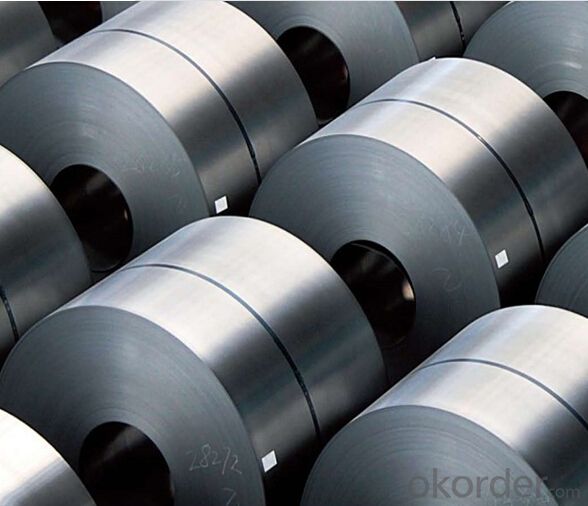
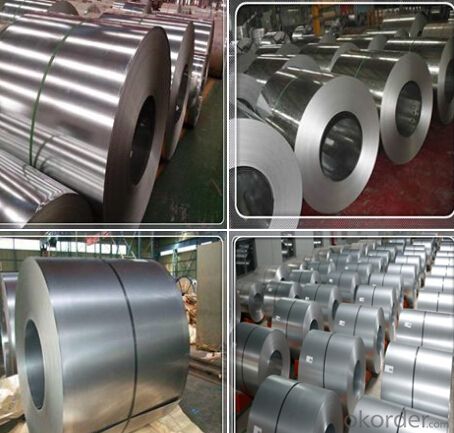
- Q: I heard on some shows that you can carbonise steel by heating it red hot then dropping it in black oil. i cant find this no where online, and the process for commercial carbon steel is totally different. can you really carbonise regular steel by heating it to red hot then dropping it in regular black oil. i saw it on mythbusters once. when the made carbon steel hammers to test if 2 hammers smashed together will shatter
- in the experience that your speaking a pair of folding pocket knife, i think of that it somewhat is somewhat six one way and a 0.5 dozen the different. i actually do choose stainless for my pocket knives. i don't choose to grease a knife to the degree i've got faith carbon demands, basically to then stick it my pocket to entice dirt to the knife and oil to my pants. i'm the impressive opposite on sheath knives nevertheless. i admire 1095 carbon steel, uncomplicated part sheath knives. i will thrash on them difficult, and that i rarely have considerable part issues. of course, I require them to be lined with some style of powder coat or the like, with the aid of fact they might rust, yet I do attempt and save them sparkling and dry whilst in the sheath, so as that they gained't pit the uncoated part. My motives for this sheath knife selection is multi-fold. First, those knives are only much less costly. i don't spend $80 money on a exterior sheath knife. i take advantage of the gadget too difficult to choose to spend extra. i don't basically like the extra classic stainless steels alongside with AUS-8, 420HC, and 440C (to not point out the HORRENDOUS 440A) with the aid of fact i've got faith that the all else being equivalent, a stainless blade will bend till now a carbon blade will harm. I additionally think of that carbon holds an part a minimum of besides, if not extra suited, than classic stainless, and it somewhat is plenty extra handy to hone. i don't understand plenty approximately those new laminates, different than the very difficult, yet not so difficult. they seem probably too brittle for my use. That, mixed with the actuality that they harm the bank, ability that I only is only not pondering them.
- Q: I don't know why but I'm having a VERY difficult time finding the melting point of 1008 steel.
- 1. okorder 2. Input (melting point 1008 steel) as the search string 3. Check the links; the third one showed the answer in an MSDS
- Q: I'm writing a book, and there is a part where there is a death arena with a white-hot river of steel. How hot would that be?
- This Site Might Help You. RE: how hot is white hot steel? I'm writing a book, and there is a part where there is a death arena with a white-hot river of steel. How hot would that be?
- Q: Does te game end with broken steel? What is broken steel? I bouht it cuz my buddy said I should.
- In Broken steel, if you've already finished the game you get to continue playing the game and see events after you die in the original. With Broken steel, instead of dying in the end, your character was just knocked into a coma and you awaken and finish helping the Brotherhood of Steel fight the enclave. It also increases the level cap from 20 to 30 so you can level up more. Basically, you help kill the Enclave, transport fresh water while fighting off raiders etc.
- Q: What are the different types of steel coil surface finishes for aesthetics?
- For aesthetic purposes, steel coil surface finishes come in various types. These finishes are applied to the steel coil surface to improve its appearance and achieve the desired aesthetic appeal. Some popular steel coil surface finishes are: 1. Polished Finish: Achieved by using abrasive materials, this finish creates a smooth and reflective surface on the steel coil. Different levels of polishing can further enhance its high-gloss appearance. 2. Satin Finish: Also known as brushed finish, this type of surface finish involves using fine abrasives to achieve a soft and matte appearance on the steel coil. It provides a subtle sheen and a textured effect. 3. Etched Finish: This finish involves a chemical process to create patterns or designs on the steel coil surface. It is commonly used for architectural applications, as it allows for intricate and decorative designs. 4. Embossed Finish: By pressing or stamping a pattern onto the steel coil surface, this finish creates a raised design that adds texture and visual interest. 5. Powder Coated Finish: A dry powder is applied to the steel coil and then heated, resulting in a protective and decorative coating. Available in a wide range of colors, it provides a durable and vibrant finish. 6. Painted Finish: This finish involves applying a layer of paint to the steel coil surface. It allows for customization in terms of color and provides protection against corrosion and environmental factors. These examples highlight the different steel coil surface finishes available for aesthetic purposes. Each finish offers a unique appearance and can be selected based on personal preferences and project requirements.
- Q: How are steel coils used in the production of shipbuilding materials?
- Steel coils are used in shipbuilding materials as they provide a versatile and durable solution. They can be processed into various shapes and sizes, including plates, beams, and sections, which are essential components for constructing ships. The coils are often cut and shaped to fit specific design requirements, offering strength and structural integrity to the ship's framework. Additionally, the coils are utilized in the fabrication of various shipbuilding components, such as hulls, decks, bulkheads, and superstructures, ensuring the vessels' resilience and stability.
- Q: What are the common coil weight and width combinations available for steel coils?
- The common coil weight and width combinations available for steel coils vary depending on the specific requirements of the industry or application. However, some commonly available coil weight and width combinations for steel coils include: 1. Light gauge coils: These coils typically have a weight range of 5 to 10 tons and a width range of 600 to 1,500 mm. They are commonly used in industries such as automotive, construction, and appliances. 2. Medium gauge coils: These coils generally have a weight range of 10 to 20 tons and a width range of 750 to 2,000 mm. They find applications in sectors like manufacturing, infrastructure, and engineering. 3. Heavy gauge coils: These coils typically have a weight range of 20 to 35 tons and a width range of 900 to 2,200 mm. They are commonly used in industries that require thicker and wider steel sheets, such as shipbuilding, oil and gas, and construction of large structures. 4. Narrow coils: These coils have a width range of less than 600 mm and can have varying weights depending on the specific requirements. They are often used in industries that require narrower strips of steel, such as automotive components, electrical appliances, and packaging. 5. Custom coil sizes: Apart from the above standard coil weight and width combinations, manufacturers can also provide custom sizes based on specific customer requirements. This allows for flexibility in meeting the unique needs of different industries. It is important to note that these weight and width combinations are not exhaustive and can vary depending on the steel manufacturer, production capabilities, and customer demands.
- Q: Can steel coils be coated with abrasion-resistant materials?
- Yes, steel coils can be coated with abrasion-resistant materials. These materials are applied to the surface of the steel coils to provide added protection against wear and tear caused by friction and other abrasive forces. This coating helps prolong the lifespan of the steel coils and maintain their performance in various applications.
- Q: Which is used for what?Differences as far as style etc.???Better in your opinion and why??I'm just beginning to look at guitars i might be able to get at christmas if i'm still committed..i've been looking online.,,,,NYLON or STEEL STRINGED ACOUSTIC GUITAR????Thanks.
- u can play any type o music with steel stringed guitar.. but with nylon string ,guitarist usually pick the strings with finger nails,coz its will be hard to hit that with guitar picks coz there will be a chance of string popping nylon string gutiars are used for classical guitar playing... the tone is somehow sweeter on nylon.. but its up to you according to your music style
- Q: Specifically, for the main support beam found in a basement.
- Steel is better. You can use a smaller size compared to wood, it will handle more weight and will not deflect like a lam beam can and will. I've worked in a lot of older houses and the ones with steel beams always had far less differential settling than those with wood beams.
Send your message to us
Hot Sale Grade of Stainless Steel Coil for Construction
- Loading Port:
- Tianjin
- Payment Terms:
- TT OR LC
- Min Order Qty:
- 25 m.t.
- Supply Capability:
- 10000 m.t./month
OKorder Service Pledge
OKorder Financial Service
Similar products
Hot products
Hot Searches
Related keywords
